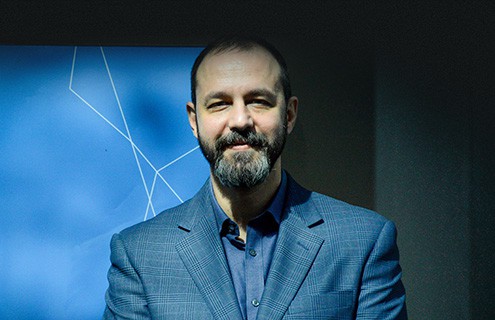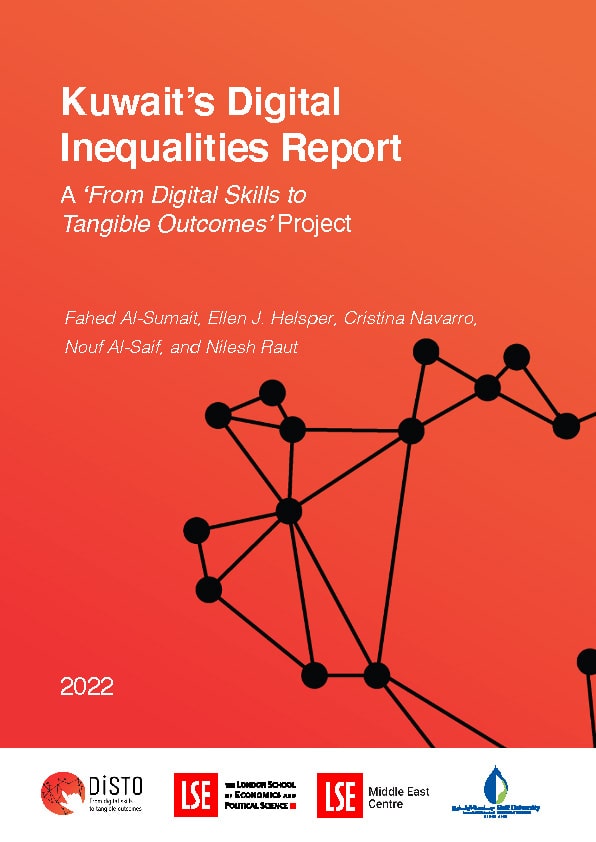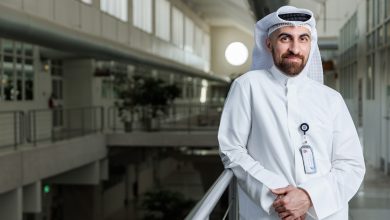Closing the Digital Divide: a Key Step Toward a Knowledge-based Economy
Identifying and removing digital inequalities is the first stage in Kuwait’s transition from tankers to tablets

As society harnesses the power of Information and Communication Technologies (ICT), the digital transformation of the global economy is well underway. As one of the world’s most digitally connected nations, Kuwait is well placed to make the most of this transformation, which is also known as the Fourth Industrial Revolution.
As Kuwait transitions from an economy that heavily relied on hydrocarbon exports toward a knowledge-based economy, these digital connections will only become more crucial.
In Kuwait, internet access is almost universal, with 99 percent of the population having access. Despite this, digital inequalities still exist. As a result, certain communities and individuals are at risk of being left behind during the digital transformation. Until now, the connection between access to ICT and variations across specific communities within Kuwait hasn’t been explored. “There’s very little reliable data either from local or international organizations about the state of Kuwait’s digital environment,” said Fahad Al-Sumait, president of the Association for Gulf and Arabian Peninsula Studies and associate professor in the Department of Communication and Media at the American University of Kuwait. “This is one of the most notable gaps in our understanding of digital capacity throughout Kuwait’s very multicultural society,” he said.
To address this knowledge gap, Al-Sumait and his coresearchers Ellen J. Helsper, Cristina Navarro, Nouf Al-Saif, and Nilesh Rau conducted a national survey, as part of the wider project known as ‘From Digital Skills to Tangible Outcomes’ or DiSTO. The findings of the DiSTO-Kuwait project were published as ‘Kuwait’s Digital Inequalities Report 2022.’ The research and subsequent report are a collaboration between the Gulf University of Science and Technology and the London School of Economics and Political Science (LSE) and were made possible by a grant from the Middle East Centre (MEC) at LSE, supported by the Kuwait Foundation for the Advancement of Sciences (KFAS).
As the first report of its kind for a Middle Eastern country, the goal was to uncover a baseline understanding of digital inequalities within Kuwait. This knowledge can then be used to inform policymakers, businesses, and others, to fully understand the impact of digital technologies and where to focus efforts when addressing inequalities.
In the first stage of the project, Al-Sumait and his team had plenty of work designing a suitable survey. Al-Sumait said that this was a challenge, as they had to not only create an accessible survey but also consider the significant power dynamics within Kuwait and how these might affect the administration of in-person interactions. The goal was to survey a diverse range of communities, to better understand patterns in access to internet-accessible devices, digital skills, and motivations for use of the internet across all demographic categories.
But just as this first stage of the project was nearing completion, the COVID-19 pandemic hit. “We trained an entire team of enumerators to conduct interviews, and were all set to administer the survey, then we had to postpone because we couldn’t run the interviews face to face as planned,” said Al-Sumait. Instead, the team had to postpone the administration of the project until they found an alternative solution.

The national survey was conducted between October 2020 and January 2021 and yielded results from just over 700 adults. It found that the distribution of digital resources in Kuwait is influenced by a range of factors, including economic, cultural, and social conditions. For example, respondents aged 18-25 showed twice the level of digital skills compared to those over 40. But these skills aren’t always used during work or school. One recommendation is the creation of new policies and practices that better integrate these digital skills into workplaces and schools so that Kuwait as a country can make the most of this latent talent.
One skill that many respondents lacked was navigation skills, in other words, the ability to find, select and evaluate different sources of information. Coupled with the fact that many people in Kuwait are primarily using the internet to find information, this suggests there’s a need for accessible and reliable ICT skills and media literacy training.
Unlike many other Arab countries, there isn’t a stark gender divide in Kuwait, with women often showing higher levels of digital skills than men. But there is a skills gap, with men showing higher levels of technical, creative, and navigational skills. A significant proportion of Kuwait’s population is made up of older expatriates of Arab or Asian origin, who often have a lower level of education. “These communities are buying relatively cheap, disposable technologies that give them basic access to the internet,” said Al-Sumait. “They’re using the internet primarily to connect with friends and families at home, not to benefit their economic status, to develop their education, or to access ecommerce and online banking sites.” These findings suggest that policies and practices are needed to narrow the gaps between the digital experiences of different communities in Kuwait.
“The data we collected provides the only counterpoint in data for the country on digital access,” said Al-Sumait. “The only other source for statistics on ICT users comes from the Communication Information Regulatory Authority (CITRA).” While they produce a lot of high-quality data, they look mainly at issues of access to the internet, which is already very high in Kuwait.
The findings of the DiSTO-Kuwait report help to highlight inequalities in internet access, by providing more detail on exactly how Kuwaitis engage with digital technologies. This level of detail helps inform the policies and practices required for the future — to not only reduce inequalities but help Kuwait prepare for the transition toward a globally interconnected, highly digitized world.
“We now have a nationally representative sample, but we would like to include more languages so we can target a much larger population,” said Al-Sumait, who, along with his team, are applying for grants so they can run the survey again, on a larger scale.
وأضاف: “إنني ممتن جدًا للدعم الذي قدمه لنا مركز الشرق الأوسط في كلية لندن للاقتصاد وKuwait Foundation for the Advancement of Sciences. لولا دعمهما وحرصهما على رعاية مثل هذه المواضيع البحثية، لكنا متأخرين كثيرًا فيما يتعلق بإعداد أنفسنا للمستقبل”.
By Emma Stenhouse





